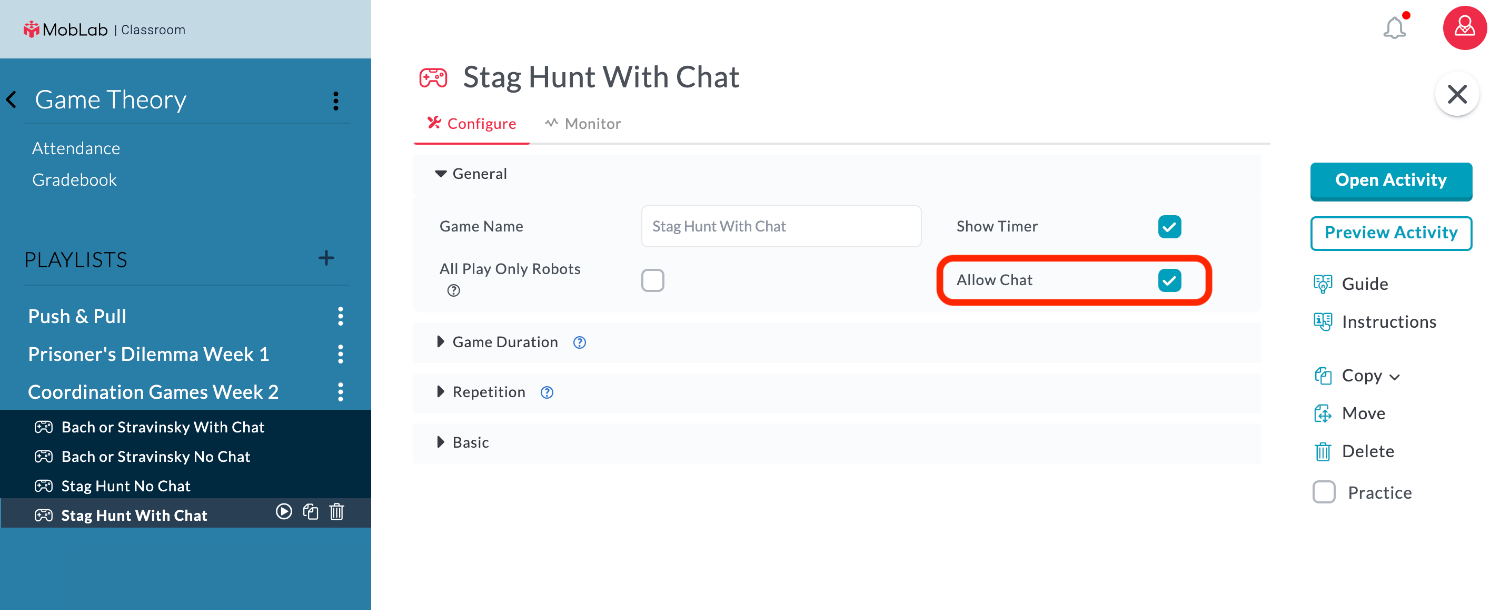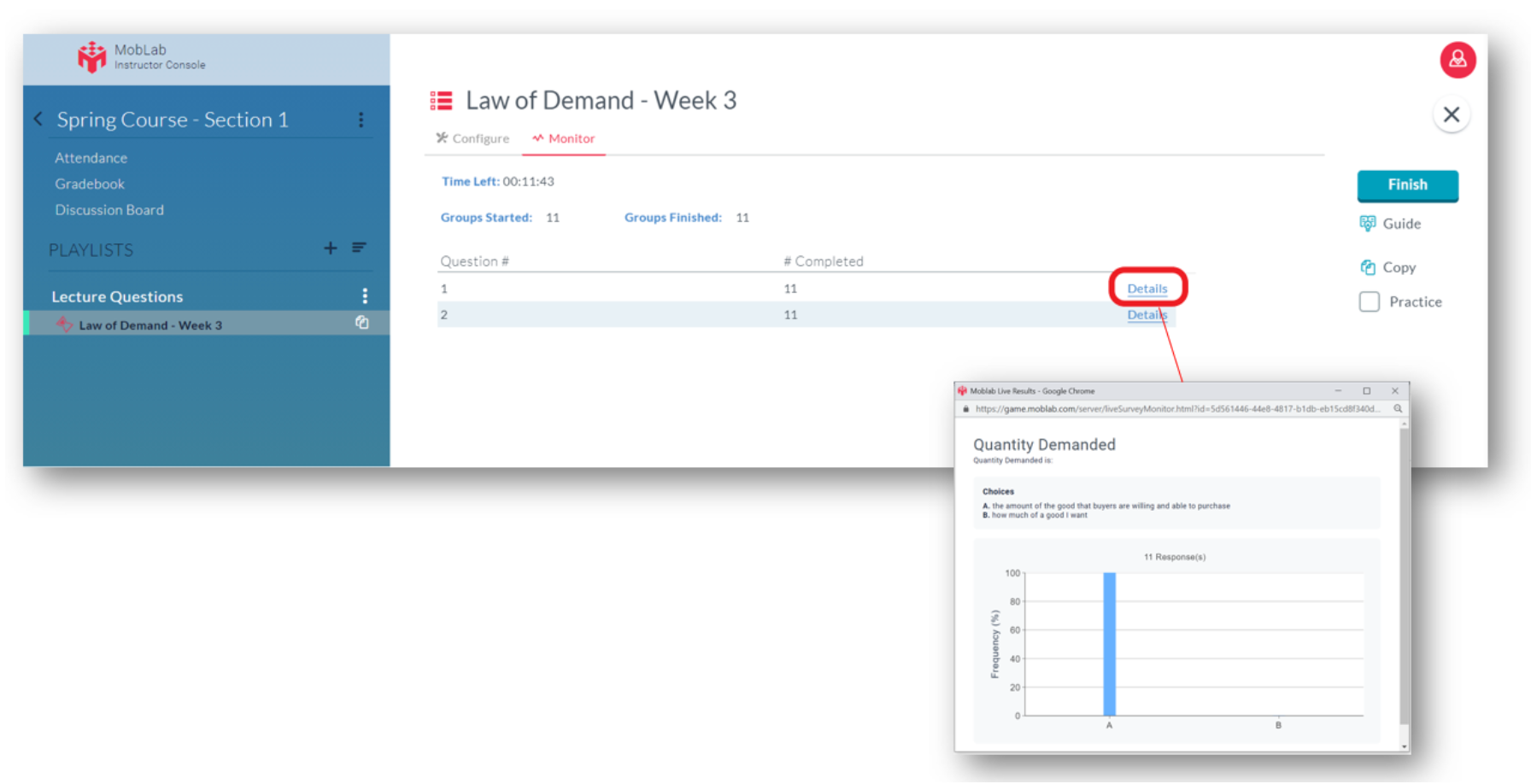Sometimes, it can be challenging to get student conversations to happen in the classroom. Whether it’s a large lecture hall that is not conducive for peer discussions or a smaller classroom where students are nervous to have an instructor’s attention, MobLab can help. There are several ways to encourage impactful classroom discussion with our platform:
Student Scoreboard: A useful way to get a birds eye view of classroom activity and performance to lead into meaningful discussions is MobLab’s Scoreboard. Students are anonymously ranked by default based on their payoffs in a MobLab game. To reveal a student’s name behind the ranking, click the “Show” button. This is a great opportunity to start a classroom conversation by asking students what actions and strategies they used during the game to achieve their payoff. The image below is a scoreboard example from our Competitive Market game. Our recommendation for encouraging conversation is to selectively reveal specific ranked students (instead of revealing everyone with the “Show All” option) and ask open ended questions about how they approached their gameplay decisions.

Using the Chat Function in our Game Theory games: Game Theory is all about cooperation. Set up games that give students the option to cooperate with (or mislead) each other by enabling chat. With in-game chat enabled, students will coordinate with each other to achieve higher payoffs. Instructors can download the chat log history to evaluate how students made decisions on a more granular level. We suggest having students first play our game theory games without chat and then enable it when repeating the game. This helps foster more class conversation by asking students if they felt they had better results with or without in-game chat. After students play these two different game treatments (i.e. without and with chat enabled), further conversation can be encouraged by asking students how their game results differed between both treatments.

In-Class Polling: In live classroom settings, provide students a moment to answer poll questions that you’ve assigned in your lecture. The results are instantaneous, saving you time and giving you a quick overview on the students’ comprehension of the materials covered. In-Class Polling results are not just a means to an end regarding score results, but rather, it can function as a bridge fostering conversation. For example, using the Law of Demand poll example below, perhaps some students answered incorrectly and thought the Law of Demand was the Law of Supply. A way to discover, and talk about, this possible misunderstanding is to look at the polling results. After viewing those results, you can immediately determine student comprehension about the concepts being taught and ask them follow-up questions to elaborate on their answers.

Getting student engagement and conversation happening in the classroom can sometimes be a big challenge. However, with MobLab’s features, you’ll have your classroom bustling in no time. The three ways above are just a few examples of how MobLab online economics games create opportunities for in-depth class discussion.
Would you like to learn more about how MobLab features can spark conversation in the classroom? Get in touch with our team. Click here to schedule a one-on-one demo meeting.



Would you like to learn more about how MobLab features can spark conversation in the classroom? Get in touch with our team. Click here to schedule a one-on-one demo meeting.

